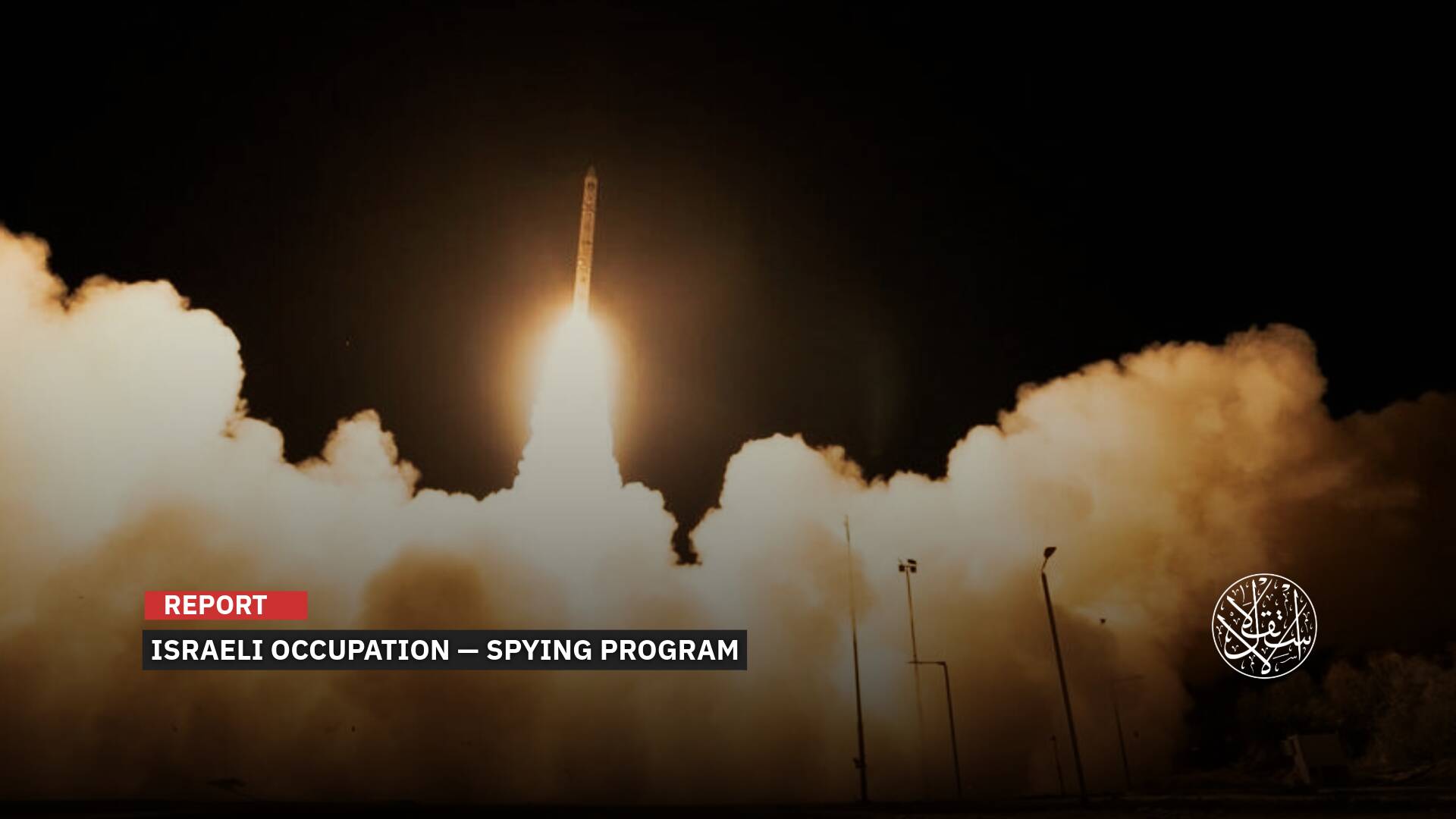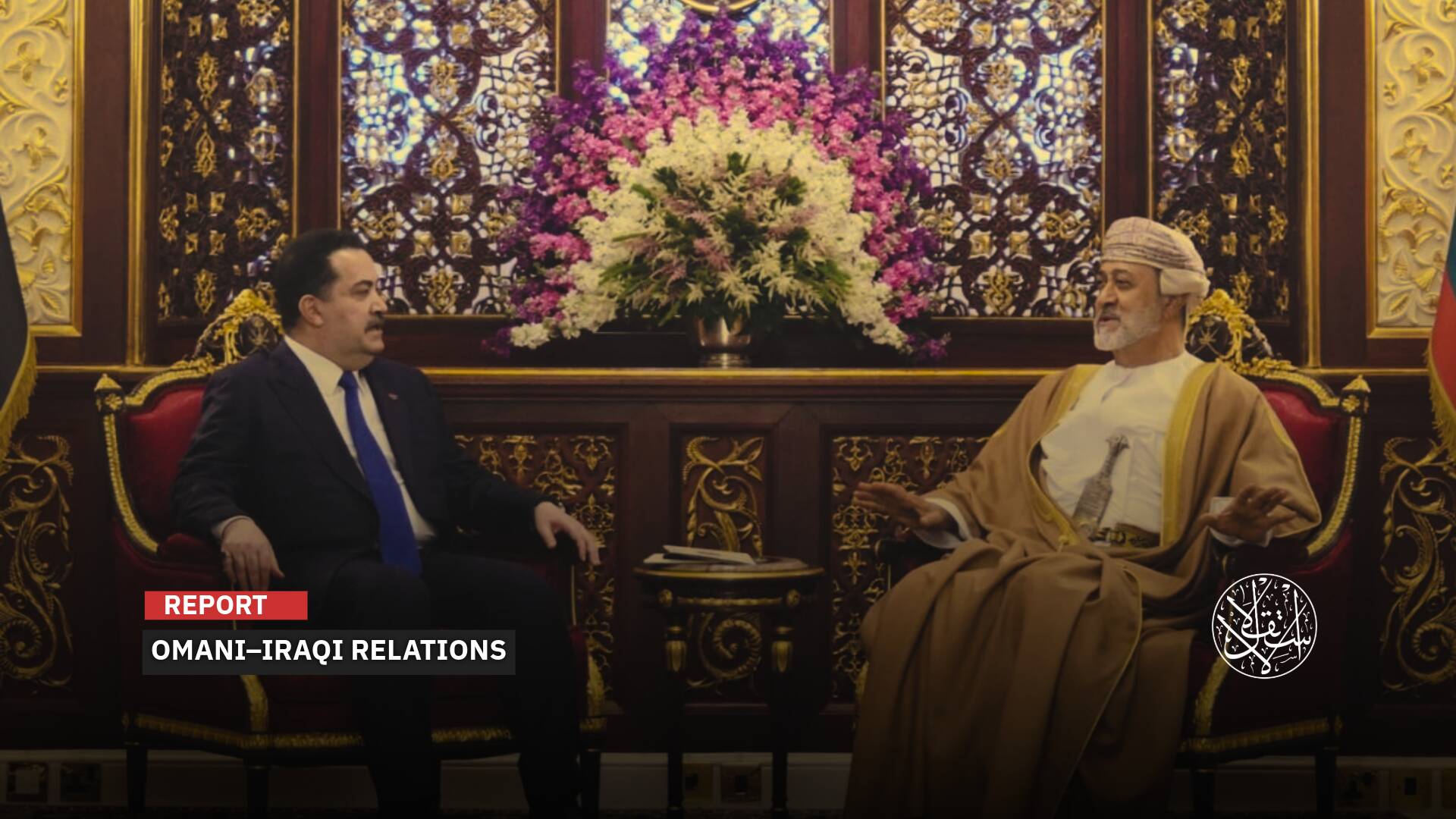China’s Rising Power in Iraq: Economic Growth and U.S. Concerns

The trade exchange between China and Iraq amounts to approximately 50 billion dollars annually.
With the return of former President Donald Trump to the White House, American media outlets have revealed that the United States is seeking to curb China's growing influence in Iraq, particularly in light of Chinese companies’ control over major oil contracts.
In recent years, China has expanded its investments in Iraq, extending beyond the oil sector to other areas such as construction, government services, and industries like automotive and energy. As a result, trade between the two nations has surged, reaching approximately $50 billion in recent years.
U.S. Efforts
According to a report published by al-Hurra on November 18, 2024, the United States is aiming to limit China's influence in Iraq by attempting to prevent Beijing from seizing investment opportunities and gaining control over the Iraqi economy.
The report cites John Akouri, a strategic planner for the Republican Party, who said, "Development and stability in Iraq make it a candidate to play a key role, not only in the region but in other parts of the world as well."
Referring to the outgoing administration of President Joe Biden, Akouri noted, "The previous administration placed Iraq at the bottom of its priorities, which allowed China and Iran to exploit the gap and vacuum. I hope we will see a different approach with the incoming administration (under Donald Trump)."
Al-Hurra highlighted that "the United States needs to assess the factors that have made China successful in Iraq, and the other factors that have prevented it from facing competition. This is where we need to start."
It also pointed out that the Trump administration is not new to the scene, having ruled for four years, and therefore is in a position to reassess Washington's strategy and how it can become an economically competitive power against China and other nations.
According to figures from the Organization of the Petroleum Exporting Countries (OPEC), since the signing of the 2019 agreement between Iraq and China, Iraqi oil exports to Beijing have increased by approximately 20%.
By 2023, exports reached more than one million barrels of oil per day, with China topping the list of Iraq's black gold importers.
In response, the Iraqi Member of Parliament Mukhtar al-Moussawi stated that "Iraq is a sovereign country, and it is in control of its foreign relations, whether political, economic, or otherwise. The United States cannot be allowed to intervene and dictate who we form economic and other relationships with."
In an interview with Baghdad Today on November 18, al-Moussawi remarked, "China is an important partner for Iraq, especially in economic and investment sectors, in addition to other areas."
The member of the Iraqi parliament's foreign relations committee added, “The United States cannot influence or limit the Chinese presence in the sectors it operates in within Iraq. This is something that Iraq firmly rejects.”

Growing Chinese Influence
Trade between Iraq and China has surged in recent years, reaching approximately $50 billion. More than a third of this figure comes from Iraq’s oil exports to Beijing.
Historically, Iraq ranked at the bottom of the list in trade exchanges with the Middle East, North Africa, and Arab nations. However, today it stands as the top importer from China and the third-largest exporter to the country.
Chinese entities now hold more than 46% of the Rumaila oil field in Iraq, the largest oil field in the country and the second-largest globally.
Additionally, other Chinese companies manage around 34% of Iraq’s proven reserves, as well as two-thirds of its current oil production. These figures highlight China’s growing influence over Iraq’s oil output.
China is the largest investor in Iraq, surpassing other Middle Eastern countries, Arab nations, Turkiye, and Iran.
According to 2023 data from the International Trade Centre (ITC), trade between Iraq and China totaled $49.7 billion.
It includes $14.3 billion exports from China to Iraq, and $35.4 billion exports from Iraq to China, predominantly oil.
In terms of goods and capital, China has exported more than 100 types of goods to Iraq, investing over $34.2 billion in this sector.
However, exports from Iraq to China have experienced significant fluctuations, as these exports were largely undiversified, with over 95% consisting of oil and its derivatives.
In terms of investments, Chinese companies—most of which are state-owned—have expanded their foothold in Iraq, particularly in the energy and real estate sectors.
41 of Chinese projects in Iraq are focused on the energy sector, with 31 of them targeting the oil sector.
Despite Iraq’s internal political and security challenges, China’s investments in the country have continued to grow over the past two decades.
Annual investments have consistently exceeded half a billion dollars, with some years seeing figures rise above $8.5 billion.
The expansion of Chinese investment in Iraq is largely attributed to a 2019 visit by Adil Abdul-Mahdi to China.
During this visit, Abdul-Mahdi signed eight agreements and memorandums of understanding with Beijing, in exchange for $10 billion or 100,000 barrels of oil per day to China.
Upon returning from his visit to Beijing in late September 2019, Abdul-Mahdi stated that the agreements covered areas such as finance, trade, reconstruction, relations, technology, education, and foreign affairs.
When protests broke out in Iraq in October 2019, the implementation of these agreements was delayed.
However, under the leadership of Prime Minister Mohammed Shia' al-Sudani in 2022, the first Chinese project—a plan to build 1,000 schools—was launched.
In 2024, the Iraqi government officially opened its first school in Nasiriyah, in Dhi Qar province in southern Iraq, as part of the schools agreed upon with China.

Risks or Opportunities
Regarding the risks of the current economic relationship between Iraq and China, Iraqi researcher and writer Mahmood Baban argues that “The primary risk lies in the vulnerability stemming from Iraq's heavy reliance on exporting crude oil to China. Should China discover alternative markets or more affordable oil sources, it may swiftly pivot its direction, as evidenced by a 9.4 percent decline in Iraqi crude oil exports to China last year.”
Iraq exports only crude oil, and therefore, if a cheaper alternative becomes available, China is likely to turn to it, Baban wrote in a report published by the Rudaw network on February 20, 2024.
He added, “In contrast, China boasts a diverse array of exports to Iraq, continually expanding its product offerings.”
“The second risk involves trading with a major economy like China, which holds significant implications for the global economy.”
“Any deceleration in economic growth would directly affect Iraq due to its reliance on imports,” Baban noted.
However, the Iraqi researcher believes that trade with China also presents numerous opportunities.
One such opportunity is the “diversification of currency: By conducting a portion of its oil sales in Chinese yuan instead of solely relying on the dollar, Iraq can diminish US pressure regarding revenue returns, providing a new avenue for financial stability.”
The second opportunity is that “Iraq stands to gain insights from China's remarkable economic growth trajectory, including lessons on rapid GDP expansion and the enhancement of per capita income.”
The third opportunity, according to Baban, is that “China's abundant reservoirs of affordable labor, equipment, technology, and electronics, Iraq can address critical infrastructure needs across various sectors. This includes bolstering transportation networks, constructing roads, buildings, hospitals, and schools, thus alleviating the country's pressing deficiencies in essential amenities.”

On September 25, 2024, Chinese Ambassador to Iraq Cui Wei revealed during a press conference at the Chinese embassy in Baghdad that trade between the two countries reached $49 billion in 2023.
The ambassador added that this made China Iraq’s largest trading partner and the biggest importer of Iraqi oil, with trade reaching $27 billion in the first half of 2024.
He also predicted that this figure would exceed what was achieved in 2023, according to reports from Shafaq.
While emphasizing the interest of Chinese companies in participating in the development of new oil and gas fields being offered by the Iraqi government, the ambassador noted that "Since the start of 2024, exports of Chinese cars to Iraq have totaled 23,000.”
Ambassador Cui also announced that the Beijing-Baghdad agreement to exempt holders of diplomatic passports from visa requirements came into effect in late 2023.
“This year, we proposed to reduce visa fees and simplify processes for Iraqi students wishing to study in China,” Ambassador Cui mentioned.
Since 2010, Chinese authorities have worked to reduce Iraq's debt, which stood at $8.5 billion at the time, in exchange for strengthening economic cooperation between the two countries, a move that, according to analysts, has allowed China to exert greater influence over the Iraqi economy.
Sources
- Can the US limit China's influence in Iraq? [Arabic]
- Chinese Trade and Investment in Iraq: Risk or Opportunity? [Arabic]
- China expands its economic influence in Iraq with more projects. [Arabic]
- Can the US limit China's influence in Iraq? [Arabic]
- Trade exchange between Iraq and China reached 27 billion dollars this year. [Arabic]









